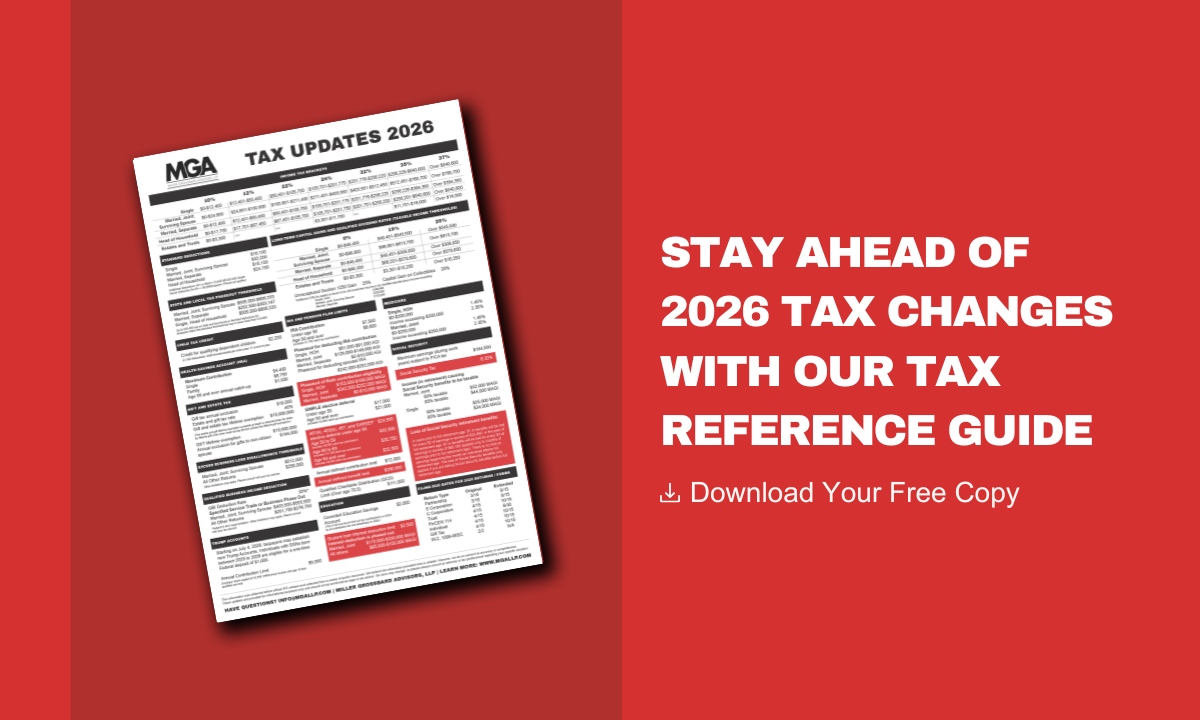In the ever-evolving landscape of tax legislation, we're here to make the complex simple. The "Tax Relief for American Families and Workers Act of 2024" has just cleared the House and is now en route to the Senate. This pivotal piece of legislation stands to reshape the tax preparation and compliance landscape for businesses and individuals alike for the year 2023.
As we delve into the potential ramifications of this act, it's crucial to stay informed and proactive. This blog aims to provide a comprehensive overview of what the potential legislation could mean for you, highlighting significant implications for your business.
Key Business Changes to Note
- 100% Bonus Depreciation: Businesses may claim 100% bonus depreciation for qualifying property placed in service between December 31, 2022, and January 1, 2026. This extension aims to bolster investment in new and used property. Under current tax law, bonus depreciation was reduced to 80% for 2023 and is scheduled to be reduced to 60% for 2024 and 40% for 2025.
- Business Interest Limitation Adjustment: The bill proposes to calculate the business interest limitation using earnings before interest, taxes, depreciation, and amortization (EBITDA) for taxable years beginning after December 31, 2021, and before January 1, 2026. This change would revert back to a less restrictive method of calculation by allowing taxpayers to addback depreciation, depletion, and amortization for purposes of the Adjusted Taxable Income (ATI) calculation.
- Immediate Expensing of R&D Costs: The Act allows businesses to currently expense domestic research or experimental costs incurred in tax years beginning after December 31, 2021, and before January 1, 2026, promoting innovation and development. Currently, these expenses are required to be capitalized and amortized over 5 years.
- Increased Penalties for ERTC Violations: The legislation seeks to impose steeper penalties on those who promote or advise erroneous Employee Retention Tax Credit (ERTC) claims. Additionally, the final date for submitting an ERTC claim would be moved up to January 31, 2024.
- Support for Affordable Housing: The Act proposes enhancements to the low-income housing tax credit (LIHTC), including a reduction in the bond-financing threshold and an increase in the state LIHTC allocation.
Potential Retroactive Implications
Some of these changes are noted to have retroactive implications. If passed, they would require revisions to tax forms and potentially necessitate updates to returns already completed for tax year 2023.
Impact on Tax Preparation Timeline
Given these potential changes, there may be prudent delays in the preparation and completion of tax documents for this tax season, such as Schedules K-1. These delays would stem from the need to accommodate new law requirements and tax-saving opportunities should this legislation be passed.
MGA's Commitment
MGA is closely monitoring the progress of this legislation. We are committed to keeping you informed and providing the necessary support to navigate these changes effectively. Our team is on standby to assist with any queries or concerns you may have regarding this development.
Thank you for your continued trust in us. We will ensure to update you as more information becomes available.
Subscribe Now!
Want to stay up to date with our latest blog posts, educational videos, webinars, and more? Get the newest updates delivered right to your inbox by clicking here to receive instant notifications whenever we publish fresh content.
Alternatively, you can opt for our monthly roundup with valuable information and insights from our team of experts. Subscribe today and stay ahead of the curve with us.
.png?width=191&name=mgalogofinal-01%20(3).png)




